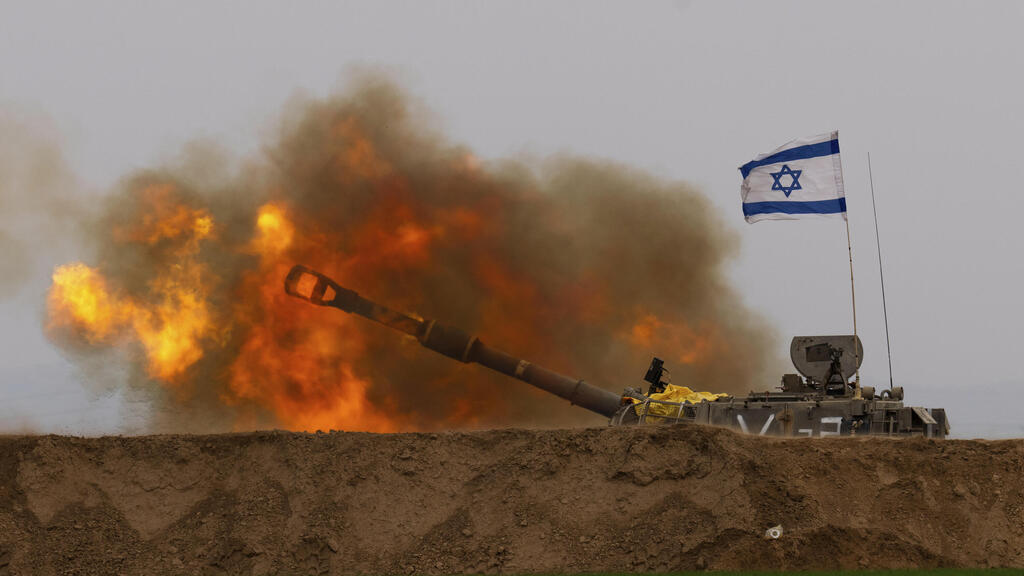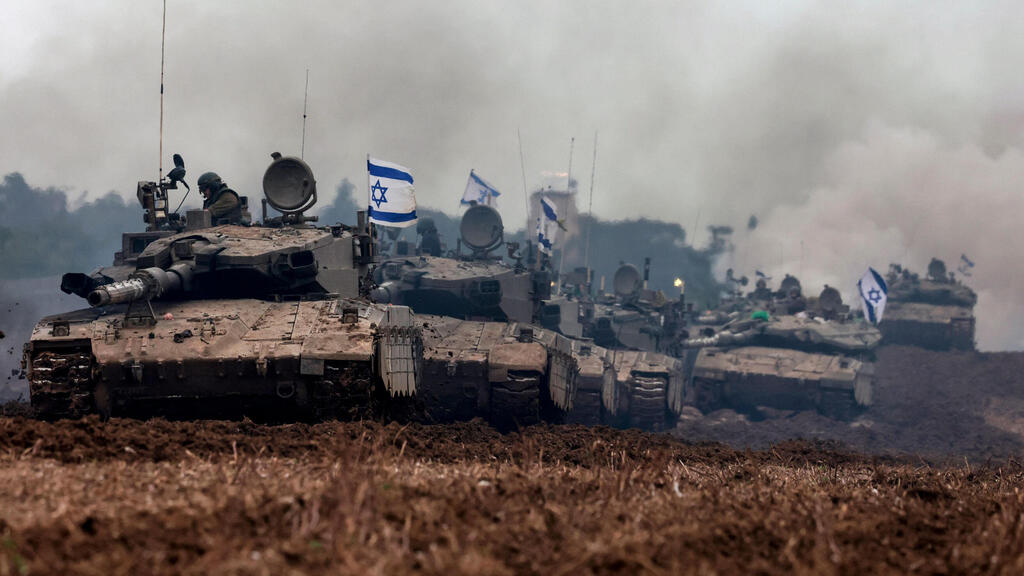Getting your Trinity Audio player ready...
A surge in ammunition usage during the wars in Gaza and Ukraine has triggered an unprecedented global shortage across all types of ammunition. And while the IDF avoids public discussion of the issue, Major General Eliezer Toledano acknowledged last month a reduction in air attacks, underscoring the imperative to "manage the economy of armaments" in anticipation of a protracted war.
Read more:
Prime Minister Benjamin Netanyahu echoed these concerns, articulating the need for U.S. support with a succinct plea: "We need three things from the U.S.: armaments, armaments, armaments." In a recent press conference, Netanyahu declared Israel's intent to diminish reliance on global sources, a challenging objective that has raised skepticism about its feasibility.
Despite the defense establishment's limited public discourse on the matter, it is actively addressing the ammunition shortage. Last week, Defense Ministry Director General Eyal Zamir finalized a substantial deal with the U.S. government, securing hundreds of millions of dollars for the supply of aerial ammunition. Over 25,000 tons of weapons have been delivered to Israel via approximately 280 aircraft and 40 ships from the U.S. since the onset of the conflict. Simultaneously, the Israeli defense industry is working diligently to replenish the IDF's stocks.
Recent reports from Calcalist reveal that Israeli companies postponed supplying weapons exceeding $1.5 billion to global customers, redirecting resources to meet the IDF's combat requirements. In the last three months alone, the Defense Ministry has ordered weaponry worth more than 10 billion shekels ($2.7 million) from these companies. Importantly, the shortage does not result from budget constraints; rather, it stems from a scarcity of supply. The Trreasury does not impose restrictions on the IDF's ability to purchase any type of ammunition.
The heightened demand for armaments is attributed to the IDF's extensive bombing campaigns in Gaza since the war's inception. The military recently announced the targeting of 30,000 sites in Gaza. A security source informed Calcalist that the IDF's firing rate in the ongoing conflict mirrors that of a "superpower," comparable only to the demonstrated capabilities of the U.S. It is speculated that the IDF's armament usage might even surpass that of the Russians in the campaign against Ukraine. Foreign media extensively covers the Gaza campaign, labeling it one of the most intensive in history and drawing comparisons to the scale of bombings witnessed in Germany during World War II.
The significant increase in targeted bombings during the war can be attributed to various factors. First, advancements in technological capabilities over the past decade and a half have empowered the IDF to execute precise attacks on hundreds of targets daily. The aftermath of the October 7 attack further underscored the utility of such capabilities.
Additionally, the IDF has adopted a policy in this current conflict, exercising restraint in causing damage to infrastructure and avoiding civilian environments where Hamas operatives may be present. This approach broadens the scope of potential targets. Furthermore, political and public pressure has played a role, with demands for increased Israeli Air Force bombings to minimize risks to ground forces.
Recent events, such as the tragic incident in Gaza last week resulting in the deaths of 21 IDF soldiers, sparked a heated debate on the necessity of utilizing ground forces for building-leveling tasks. Despite the Air Force's high capabilities, certain missions are better suited for infantry or combat engineering forces.
While justified, the question arises whether this intensified bombing, given the existing ammunition stockpile, could compromise the IDF's readiness for future missions, particularly considering security challenges. There's a potential scenario in which the IDF might need to conduct an attack in southern Lebanon. To avoid the extreme scenario of an ammunition shortage, the IDF may need to communicate its limitations more clearly to politicians, echoing Toledano's caution that "There is no infinite army."
First published: 23:39, 01.28.24




